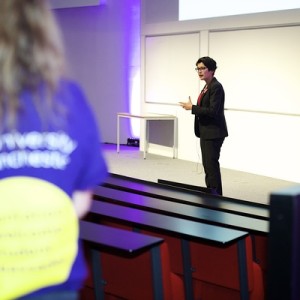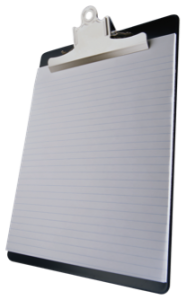Contents
Appendix 3 A Practical Guide to Writing Essays
Intended Learning Outcomes
- This unit will provide an opportunity for you to integrate the information obtained in your lecture-based units to obtain an overview of your own degree programme discipline. It is vital preparation for degree programme specific papers.
- The work you do for tutorials will help you to develop new and improve existing skills. Employers value these 'transferable skills', which will also help you with time management during the final year of your degree course, when you must balance course work and project work, and improve your technique in examinations.
- Problem-solving skills will have a special emphasis in final year tutorials. These skills will aid not only your success in your final year units and exams, but also boost your employability as employers often set problem solving tasks as part of the interview process.
Assessment

Your tutorial assignments will be set by your Academic Advisor. Feedback will be provided for all exercises you undertake during tutorials either from your Advisor or from your peers. You will be set a total of 10 assignments throughout the year, which will be marked as pass/fail. Your Advisor may give you a numerical or degree-class mark on some assignments if appropriate.
Illness
If you are absent from a tutorial or unable to complete a tutorial assignment through illness, make sure you follow the guidelines on ill-health set out in the Final Level Handbook. Importantly, you must alert the Student Support Office and your Advisor by 5pm on the day of your tutorial AND submit a self-certification note or medical documentation promptly to the Student Support Office on your return to University (within one week of your absence). It is your responsibility to provide this information.
If you are unable to attend for any other good reason, you must supply documentary evidence to your Advisor strongly supporting your reasons for absence. Unexcused absences from tutorials may lead to the issuing of a formal warning letter. Unexcused absences may lead to exclusion from study in the Faculty.
For further information on this and other related matters, please read relevant sections of the Final Level Handbook.
Student Feedback
In order to help us maximise the benefits that you gain from tutorials, we need feedback from you, both on the tutorial activities and on your Advisor’s performance. For this purpose you will be asked to complete a unit survey at the end of each semester. It is important for us to have your opinion, as these surveys will be used to determine how tutorials are constructed and conducted in future years. Details of how to access/complete the survey will be given to you each semester.
Employability Skills
You have your own online ‘Employability Skills Record’, which is located on the intranet within your personal profile. Your Personal Advisor can also view this. The aim of this record is to help you monitor and take an active part in the development of your employability skills (e.g. presentation skills, leadership skills). You should update your ‘Employability Skills Record’ on a regular basis, and at least once per semester. The Skills Record offers you links to useful suggestions to help you to develop your employability skills. You should discuss your ‘Employability Skills Record’ with your Personal Advisor during your 1:1 meetings. There is space on your record to set targets and you should review these regularly to chart your progress and think of strategies to develop your skills further.
What you write in your Employability Skills Record should prove extremely valuable if you apply for further study or graduate jobs, as the topics covered reflect those you may be asked about in many application processes.
Within the tutorial unit on Blackboard (BIOL30000), you will find a resource entitled ‘Developing your Employability Skills’. This resource contains useful information about:
- Writing a good CV (including template and example CVs)
- Writing a personal statement for your CV
- Interview guidance
- Writing a covering letter
- Choosing a referee
Employability Skills Development in Tutorials
One of your tutorials in Year 3 may focus on tailoring your CV for a particular job application.
Your Academic Advisor will inform you about when this tutorial will be scheduled. You will be required to prepare in advance for this tutorial. Further information about these tutorials is available in the ‘Employability Tutorial Exercises’ on Blackboard.
Careers Advisory Service
The role of the Careers Advisory Service is to help you with all your career needs, whether you’re looking for:
- the chance to talk over what options you might have after graduating, such as jobs, further study, voluntary work or time out
- help in searching for possible jobs, for work experience during your degree or after graduation
- practical help in making sure your CVs, applications and interviews persuade employers that you’re the one they want
- an extensive library of factual information on types of work, employers, courses and current vacancies
They offer a personalised service with booked appointments with specialist advisers (particularly useful for those “I don’t know what I want to do/where to start” queries, which are quite normal), a drop-in quick query service, a specialist “over the counter” information service, and 24-hour access to careers information and vacancies through their website.
The locations of the Careers Advisory Service and other information can be found at their web site - http://www.careers.manchester.ac.uk
Tutorial Activities
Final year tutorials will have programme-specific content provided by your Programme Director. As such, your assignments may vary in order or type from those undertaken by students on other degree programmes. In general, all Advisors are expected to set a minimum of 5 pieces of work for each semester. Students will be monitored on their completion of these assignments. In preparation for final year programme-specific exams, your Advisor will work through past papers with the tutorial group. These papers draw upon knowledge gained in the entirety of your degree programme. The skills you develop for completing these programme-specific exams may also be useful for your final year unit exams. Attendance and participation in final year tutorials is the best method of preparation for these papers. In addition, you may have access to past papers for your final year degree programme specific papers via: Crucial Guide> Academic life> Exams> Past papers (http://www.studentnet.manchester.ac.uk/crucial-guide/) . Enter either your degree programme title or the word “Essay” in the search, in Year 3 Semester 2. Past Problem papers are not normally released to this site, but your Advisor will provide examples.
Semesters 5 & 6
- Problem Solving
Each Programme Director will provide exercises to Academic Advisors to develop further problem-solving skills. At least four problems will be undertaken by all students who are registered for the Problem paper. The skills developed by undertaking these problems will aid students in the completion of programme-specific problem papers.
- Essay Writing
Each Programme Director will provide essay titles to Academic Advisors to enhance critical thinking and science communication skills. These skills will aid students in the completion of programme-specific essay exams. The completion of at least four essays by all students registered for the essay paper for Advisor and/or peer evaluation is expected. The techniques you develop for programme-specific essay writing may also be applicable to your final year unit essay exams.
- Oral Presentation
During semester 5, Advisors may set an assignment requiring students to give an oral presentation to the tutorial group. In Semester 6 you will be required to give a presentation on your final year project or for students on the 4-year Masters programme on one of their two grant proposals. The format of this presentation will be set by your Advisor. The presentation should summarise the project aims and the rationale for the work, highlight any challenges and describe how these were overcome, and discuss the outcomes of the work (what was done and how the work adds to the field). Your Academic Advisor will assess your presentation skills.
Employers seek candidates with strong oral communication skills, and viva candidates may be asked about their final year project, and so this tutorial assignment will aid in the development of key communication skills.
Other tutorial presentations may be assigned during the course of the final year at the discretion of your Academic Advisor.
The above assignments represent the minimum expected to be set for all students. Your Academic Advisor may also hold tutorials on topics to assist in your applications for employment or further study, such as CV review, cover letter writing, and/or interview practice. Please note that some Advisors or programmes may not include this content in tutorials. If you have other questions relating to your future career, you should seek assistance from your Personal Advisor and from the University Careers Advisory Service (see above).
Appendix 1: Employability
The following table outlines the transferable skills employers seek and how you can develop these. You should record examples of how you have developed and applied these skills in your Employability Skills Record so that you can use them on job applications and in interviews in the future.
| What are employers looking for? | What does that mean? | How can you develop this skill? |
| Ability to articulate what you have to offer. | Reflect on the skills you have gained throughout your tutorials and other units AND develop good communication skills so that you can talk about your skills and provide evidence that you have them to potential employers. | Reflection Update your Employability Skills Record on the intranet Communication Skills Oral presentations (tutorials; some lecture units; lab meetings)Essays (tutorials; many lecture units)Debate (some tutorials; some lecture units) |
| Self awareness | Know what your skills, strengths and weaknesses are and have examples of how and when you have demonstrated this knowledge. | When you have completed a task (e.g. formal presentation, essay, exam) reflect on your performance, write examples and state what you intend to do differently next time in your Employability Skills Record. |
| Self management/ability to manage learning | Effectively manage your time and complete work within deadlines. | Your final year project will hone this skill, and will need to fit in with all your other demands, such as coursework essays, reading for lecture units. |
| Self efficacy | Belief in your capabilities to achieve a goal or an outcome effectively. If you have a strong sense of self efficacy you are more likely to challenge yourself with difficult tasks and be intrinsically motivated. | You will be supported to undertake challenging activities, successful completion of which should boost your self efficacy, especially your project, but also essays on unfamiliar topics, individual and/or team presentations. |
| Self esteem/confidence | Have a good opinion of yourself and confidence in your abilities. | You will have the opportunity to rise to the challenges provided by completing independent work to deadlines (eg dissertation) and to learn from constructive criticism (eg peer review in tutorials; discussion groups and feedback from advisors/project supervisor). |
| Critical thinking | Able to analyse an idea or a piece of work objectively and weigh up its strengths and weaknesses. Recognise your own biases and be open to new ideas if evidence supports them. | Essays, and oral presentations will include structured presentations of a logical argument. In tutorials you will read and critically analyse primary literature in preparation for your dissertation, and will present your work in oral and written form. |
| Teamwork | Proven ability to work well within a team AND an understanding of the role you take within a team. | Most projects and tutorial activities involve some teamwork, some final year lecture units also do, so you should take different roles such that you experience as many as possible and reflect on your strengths and development needs. |
| Project management | Project management requires effective planning, and management of resources to bring about the successful completion of specific project objectives. | Your project will be the main opportunity to develop this skill, but you may also manage smaller projects in some lecture units, within the Manchester Leadership Programme, or within the role of PASS leader or PASS co-ordinator. |
| Problem solving | Grasp what needs to be done and reach a satisfactory solution to a problem. | The tutorials will include practice of problem solving in preparation for data handling in practical write-ups and the final programme specific problem paper. |
| Cultural sensitivity/awareness | Experience of interacting with individuals from a range of different backgrounds and ability to adapt your approach to suit the needs of the people you are working with. | We have a diverse staff and student body so you are likely to interact with individuals from a range of backgrounds during your tutorials and project, or as an ambassador or PASS leader. The MLP and any volunteering you undertake (see http://www.manchester.ac.uk/study/experience/student-life/university/volunteering/)provide opportunities to work within the local community, which is also diverse. |
| Leadership skills | Proven ability to lead a team effectively. | You may have the opportunity to act as a leader within your project or as a senior ambassador, but if not can seek the opportunity in a final year discussion group, in the MLP or as a PASS Leader. Good listening skills are essential to this role. |
| Innovation/Creativity | Being able to come up with new ideas, approaches and solutions. Thinking ‘outside the box’ and being able to suggest new/improved ways of doing things. | You will have the opportunity to be innovative in terms of your approach to topics, ideas for GBLs in tutorials, mini projects and in how you present your work and overcome problems. Your main opportunity to improve these skills will be in your final year project. |
| Written Communication | Being able to use correct spelling, grammar and punctuation. Effectively organising your ideas and communicating these in a coherent manner. | Throughout your degree you will develop your written communication skills through your assignments such as essays, dissertation and project write ups. |
| Research skills | This may refer to researching literature, searching databases, identifying appropriate resources and extracting key information or may refer to practical scientific research. Research is also an important skill when looking for and applying for jobs. | You will have the opportunity to carry out research throughout your degree. You should do extra reading around your lectures including reading recent primary literature and review articles. Research will be required for essays, your dissertation and literature review. Your main opportunity for research will be during your final year project. |
| Numeracy | Being able to work with numbers is a key skill and may range from basic mental arithmetic to being able to analyse and interpret data. | Data Handling modules and most practicals/projects are designed to help you develop your numerical skills and ability to use statistics. Numerical skills are required in your lab work to work out concentrations and dilutions and to calculate whether results are statistically significant. |
| Presentation skills | Proven ability to communicate your ideas both visually and orally. | You will undertake presentations in tutorials, field courses and as part of your final year projects. Becoming an ambassador, PASS leader or student rep gives you further opportunity to develop your presentation skills. |
For further help see http://www.careers.manchester.ac.uk/experience/skills/
The section on “Develop your skills” contains ideas on how to develop these skills beyond your degree (plus guidance on how recruiters assess for them).
The My Learning Essentials training programme offers careers advice through face–to-face workshops and online resources, visit the link below for more information:
http://www.library.manchester.ac.uk/academicsupport/mylearningessentials
Appendix 2: Oral presentations
Nervous? Everybody is nervous at the idea of giving a talk. The good news is that you will undoubtedly get less nervous as you become more experienced and more proficient. The bad news is that nobody ever quite gets over the jitters. This appendix will provide you with a few tips to help you design your first oral presentation and hopefully make it a good one.
A talk is normally divided in much the same way as a scientific paper with an Introduction, Methods, Results, Discussion/Conclusion and Acknowledgements. You don’t need to actually have slides labelled as such but this structure should be evident in your talk. Try to remember the following piece of advice. If you understand its message it will stand you in good stead: “First you tell them what you are going to tell them, then you tell them, then you tell them what you told them”
Tips for public speaking
- Start and end well - You will be most nervous at the beginning of your talk and here is where you must set the talk moving in the right direction to capture people’s attention. It is therefore absolutely critical that you know exactly what you are going to say in the first few minutes. Rehearse your opening lines thoroughly. When you have finished the main part of your talk how do you end? Never, never find yourself having to say “Well that’s it” to a sea of puzzled faces! They need to know when you are going to end, so again this must be prepared in advance. Spend a disproportionate share of your preparation time on starting and finishing well.
- Look at the audience - This is a difficult one for beginners since it really requires you to learn to speak mainly from notes. Most students are so terrified on giving a talk that they seek the security of a written script. Throw your script away. A script, in a single swoop, cuts the speaker off from the audience and bars any interaction between them.
- Practice - Like everything else, oral presentation is a skill which improves with practice.
- Enthusiasm - you appear bored you will automatically convince your audience that what you are talking about is boring.
- Your voice - You need to speak loudly enough so that the person at the back of the room can hear you. Project, don’t shout!
- Humour - Some of the most accomplished speakers entertain while at the same time informing. However, for the beginner the vast majority of jokes, silly drawings etc. can fall flat on their proverbial faces. Introducing humour into a talk is really very difficult and is really best avoided by the beginner. If you are in any doubt leave it out!
- Time keeping. - Stick to it. Even experienced speakers often fail to understand that the extra ten minutes taken to display some fascinating new data that just must be shared, is actually an indulgence imposed on a (nearly always) unwilling audience. The only way you will know that your talk is the right time is to practice it beforehand.
- Projectors and props - How many times have you been to a lecture where the speaker wrestles with the visual aids, has no idea how turn down the lights, can’t a find pointer etc ? Before the session in which you are giving your presentation, go to the front and find out how to switch things on or off.
- Slides - Keep them simple. Be scrupulous in removing extraneous detail. Avoid complicated diagrams and putting too much information on a slide. Slides should be simple to follow and informative. Mark both axes of every graph and always state the units. Mention in words what each axis shows. Do not expect the audience to be able to read all the detail you have on the slide and listen to you and interpret both. One slide per minute is a good general rule for keeping to time.
- Check your presentation before your talk to determine that the slides convey the information you want them to and that they are legible from the back of the lecture theatre/seminar room.
(Adapted from article by Prof. N. Gow, Aberdeen University)
Appendix 3: A practical guide to writing essays

Writing an essay is a big task that will be easier to manage if you break it down into five main tasks as shown below:
An essay-writing Model in 5 steps
- Analyse the question
What is the topic?
What are the key verbs?
- Research
Question the question—brainstorm and probe
What information do you need?
How are you going to find information?
Find the information
Make notes and/or mind maps.
- Plan and sort
Arrange information in a logical structure
Plan sections and paragraphs
- Draft
Main body
Introduction and conclusion
References
- Edit (and proofread)
For sense and logical flow
For grammar and spelling.
For length.
My Learning Essentials offers a number of online resources and workshops that will help you to, understand the importance of referencing your sources, use appropriate language and style in your writing, write and proofread your essays. For more information visit the writing skills My Learning Essentials pages:
http://www.library.manchester.ac.uk/academicsupport/mylearningessentials/writingskills/
You should note that for final year unit examinations and programme-specific essay papers the inclusion of citations is not expected. You do not need to memorise sources and quotations to include on the exam paper – instead make your points in as much detail as required using your own words. Should you wish to refer to a particular publication or piece of data to support your answer, it is sufficient to explain the experiment and result. It is not necessary to include the journal citation within your exam booklet.
- Analyse the question
Many students write great essays — but not on the topic given. First, look at the main idea or topic in the question. What are you going to be writing about? Next, look at the verb in the question — the action word. This verb, or action word, is asking you to do something with the topic.
Here are some common verbs or action words and explanations:
| Analyse | Take to pieces and determine what makes up the various parts. This involves examining something minutely and critically. |
| Compare | Liken one thing to another, and discuss the degree of likeness or unlikeness. |
| Contrast | Set things in opposition so as to show the difference between them. |
| Criticise | Weigh up all aspects by careful examination, and deliver an opinion upon them. |
| Define | Give the exact meaning. |
| Describe | Set out the features, qualities or properties of what is asked, in detail. |
| Discuss | Consider or examine by argument, investigate for and against. |
| Enumerate | Specify the items by numbering the points. |
| Evaluate | Interpret, analyse (take apart the whole), then synthesise (put together) the significant points and make a judgement upon them. |
| Examine | Inquire into, investigate by considering critically, thereby weighing and sifting information/opinions. |
| Explain | Make plain, clear; unfold and illustrate the meaning of. |
| Illustrate | Make clear, explain by means of description, examples, diagrams and figures. |
| Interpret | Explain the meaning of - which generally involves translating information from one form to another (for example, putting a graph into words), thereby showing a complete understanding of it. |
| Justify | Prove or show to be just or right; to show grounds for. |
| List | Number the items or ideas down the page. |
| Outline | Give the main general features, facts or principles. |
| Prove | Demonstrate by argument or reasoning, test. |
| Relate | Tell, recount; establish relation between. |
| Resolve | Separate into its component parts (analyse) and explain. |
| Review | Go back over and look carefully and critically. |
| State | Set out the facts with explicitness and formality. |
| Summarise | Give a concise account of the main points. |
- Research
Once you have analysed the question, start thinking about what you need to find out. It’s better and more efficient to have a clear focus for your research than to go straight to the library and look through lots of books that may not be relevant.
Start by asking yourself, 'What do I need to find out?' Put your ideas down on paper. A mind map is a good way to do this. Useful questions to start focusing your research are: What? Why? When? How? Where? Who?
- My Learning Essentials offer a number of online resources and workshops to help you to plan your research. Visit the My Learning Essentials Finding Information page: http://www.library.manchester.ac.uk/academicsupport/mylearningessentials/findinginformation/
- Plan and sort
Reading
First, scan through your source. Find out if there's any relevant information in what you are reading. If you're reading a book, look at the contents page, any headings, and the index. Stick a Post-It note on useful pages.
Next, read for detail. Read the text to get the information you want. Start by skimming your eyes over the page to pick our relevant headings, summaries, words. If it's useful, make notes.
Making notes
There are two rules when you are making notes:
- Note your source so that you can find it again and write your references at the end of the essay if you use that information. Use Endnote (see the section on Referencing), or note down the following:
- author(s)
- title
- page reference
- date of publication
- publisher's name (book)
- place where it was published (book or journal)
- the journal number, volume and date (journal)
- Make brief notes rather than copy text, but if you feel an extract is very valuable put it in quotation marks so that when you write your essay, you'll know that you have to put it in your own words. Failing to rewrite the text in your own words would be plagiarism.
- For more information on plagiarism, refer to the Final Level Handbook and the My Learning Essentials online plagiarism resource: http://libassets.manchester.ac.uk/mle/avoiding-plagiarism/
Everyone will make notes differently as it suits them. However, the aim of making notes when you are researching an essay is to use them when you write the essay. It is therefore important that you can:
- Read your notes
- Find their source
- Determine what the topics and main points are on each note (highlight the main ideas, key points or headings).
- Compose your notes so you can move bits of information around later when you have to sort your notes into an essay.
For example:
- Write/type in chunks (one topic for one chunk) with a space between them so you can cut your notes up later, or
- write the main topics or questions you want to answer on separate pieces of paper before you start making notes. As you find relevant information, write it on the appropriate page. (This takes longer as you have to write the source down a number of times, but it does mean you have ordered your notes into headings.)
Sort information into essay plans
You've got lots of information now: how do you put it all together to make an essay that makes sense? As there are many ways to sort out a huge heap of clothes (type of clothes, colour, size, fabric…), there are many ways of sorting information. Whichever method you use, you are looking for ways to arrange the information into groups and to order the groups into a logical sequence. You need to play around with your notes until you find a pattern that seems right and will answer the question.
- Find the main points in your notes, put them on a separate page - a mind map is a good way to do this - and see if your main points form any patterns or groups.
- Is there a logical order? Does one thing have to come after another? Do points relate to one another somehow? Think about how you could link the points.
- Using the information above, draw your essay plan. You could draw a picture, a mind map, a flow chart or whatever you want. Or you could build a structure by using bits of card that you can move around.
- Select and put the relevant notes into the appropriate group so you are ready to start writing your first draft.
- Draft
The essay has four main parts:
- introduction
- main body
- conclusion
- references.
People usually write the introduction and conclusion after they have written the main body of the essay, so we have put them in that order.
For more information on essay writing visit the My Learning Essentials web pages:
http://www.library.manchester.ac.uk/academicsupport/mylearningessentials/writingskills/
Main Body
Structure. The main body should have a clear structure. Depending on the length of the essay, you may have just a series of paragraphs, or sections with headings, or possibly even subsections. In the latter case, make sure that the hierarchy of headings is obvious so that the reader doesn't get lost.
Flow. The main body of the essay answers the question and flows logically from one key point to another (each point needs to be backed up by evidence [experiments, research, texts, interviews, etc …] that must be referenced). You should normally write one main idea per paragraph and the main ideas in your essay should be linked or 'signposted'. Signposts show readers where they are going, so they don't get lost. This lets the reader know how you are going to tackle the idea, or how one idea is linked with the one before it or after it.
Some signpost words and phrases are:
- 'These changes . . . "
- 'Such developments
- 'This
- 'In the first few paragraphs . . . "
- 'I will look in turn at. . . '
- 'However, . . . "
- 'Similarly'
- 'But'.
Figures: purpose. You should try to include tables, diagrams, and perhaps photographs in your essay. Tables are valuable for summarising information, and are most likely to impress if they show the results of relevant experimental data. Diagrams enable the reader to visualise things, replacing the need for lengthy descriptions. Photographs must be selected with care, to show something meaningful. Nobody will be impressed by a picture of a giraffe - we all know what one looks like, so the picture would be mere decoration. But a detailed picture of a giraffe's markings might be useful if it illustrates a key point.
Figures: labelling, legends and acknowledgment. Whenever you use a table, diagram or image in your essay you must:
- cite the source
- make sure that the legend and explanation are adapted to your purpose.
For example: Figure 1. The pathway of synthesis of the amino acid alanine, showing... From Bloggs (1989). [Never use the original legend, because it is likely to have a different Figure number and to have information that is not relevant for your purposes. Also, make sure that you explain any abbreviations or other symbols that your reader needs to know about the Figure]
Checklist for the main body of text
- Does your text have a clear structure?
- Does the text follow a logical sequence so that the argument flows?
- Does your text have both breadth and depth - i.e. general coverage of the major issues with in-depth treatment of particularly important points?
- Does your text include some illustrative experimental results?
- Have you chosen the diagrams or photographs carefully to provide information and understanding, or are the illustrations merely decorative?
- Are your figures acknowledged properly? Did you label them and include legend and explanation?
Introduction
The introduction comes at the start of the essay and sets the scene for the reader. It usually defines clearly the subject you will address (e.g. the adaptations of organisms to cold environments), how you will address this subject (e.g. by using examples drawn principally from the Arctic zone) and what you will show or argue (e.g. that all types of organism, from microbes through to mammals, have specific adaptations that fit them for life in cold environments). The length of an introduction depends on the length of your essay, but is usually between 50 to 200 words
Remember that reading the introduction constitutes the first impression on your reader (i.e. your assessor!). Therefore, it should be the last section that you revise at the editing stage, making sure that it leads the reader clearly into the details of the subject you have covered and that it is completely free of typos and spelling mistakes.
Check-list for the Introduction
- Does your introduction start logically by telling the reader what the essay is about - for example, the various adaptations to habitat in the bear family?
- Does your introduction outline how you will address this topic - for example, by an overview of the habitats of bears, followed by in-depth treatment of some specific adaptations?
- Is it free of typos and spelling mistakes?
Conclusion
An essay needs a conclusion. Like the introduction, this need not be long: 50 to 200 words long, depending on the length of the essay. It should draw the information together and, ideally, place it in a broader context by personalising the findings, stating an opinion or supporting a further direction which may follow on from the topic. The conclusion should not introduce facts in addition to those in the main body.
Check-list for the Conclusion
- Does your conclusion sum up what was said in the main body?
- If the title of the essay was a question, did you give a clear answer in the conclusion?
- Does your conclusion state your personal opinion on the topic or its future development or further work that needs to be done? Does it show that you are thinking further?
References
In all scientific writing you are expected to cite your main sources of information. Scientific journals have their own preferred (usually obligatory) method of doing this. The piece of text below shows how you can cite work in an essay, dissertation or thesis. Then you supply an alphabetical list of references at the end of the essay.
The Harvard style of referencing adopted at the University of Manchester was covered in the Writing and Referencing Skills unit in semester 2. For more information refer to the Referencing Guide from the University Library (http://subjects.library.manchester.ac.uk/referencing/referencing-harvard).
Citations in the text
Jones and Smith (1999) showed that the ribosomal RNA of fungi differs from that of slime moulds. This challenged the previous assumption that slime moulds are part of the fungal kingdom (Toby and Dean, 1987). However, according to Bloggs et al. (1999) the slime moulds can still be accommodated in the fungal kingdom for convenience. Slime moulds are considered part of the Eucarya domain by Todar (2012).
Reference list at the end of the essay:
List the references in alphabetical order and if you have several publications from the same author(s) written the same year, add a letter (a,b,c…) after the year to differentiate them.
Bloggs, A.E., Biggles, N.H. and Bow, R.T. (1999). The Slime Moulds. 2nd edn. London and New York: Academic Press.
[Guidance: this reference is to a book. We give the names of all authors, the publication date, title, name of publisher and place of publication. Note that we referred to Bloggs et al.(1999) in the text. The term "et al." is an abbreviation of the Latin et alia (meaning "and others"). Note also that within the text "Bloggs et al." is part of a sentence, so we put only the date in parentheses in the citation in the text. If you wish to cite the entire book, then no page numbers are listed. To cite a specific portion of a book, page numbers are added following the book title in the reference list (see Toby and Dean below).]
Todar K. (2012) Overview Of Bacteriology. Available at: http://textbookofbacteriology.net, [Accessed 15 November 2013].
[Guidance: this reference is to a website. We give the name of the author (or organisation if there is no author or write “anonymous” if no other option available) and the full URL (web address). It is important to state when you accessed the site, because the information on web sites can change.]
Jones, B.B. and Smith, J.O.E. (1999). Ribosomal RNA of slime moulds, Journal of Ribosomal RNA 12, 33-38.
[Guidance: this is a reference to a published scientific paper. We give the names of all authors, the date, title of the paper, the journal name (in italics), volume number and page numbers (first and last) of the paper.]
Toby F.S. and Dean P.L. (1987). Slime moulds are part of the fungal kingdom, in Edwards A.E. and Kane Y. (eds.) The Fungal Kingdom. Luton: Osbert Publishing Co., pp. 154-180.
[Guidance: this is a reference to a chapter in a book edited by Edwards and Kane. We give the names of all authors, date, title of the article, editors of the book, title of the book, first and last page numbers of the chapter cited, publisher and place of publication. Note how we cited this reference (Toby and Dean, 1987) in the text. We put the whole reference in brackets because it was not part of the sentence. If we wanted to put two references in brackets, we would write: (Toby and Dean, 1987; Todar, 2012). Typically, we would use chronological order (1987 before 2012) and separate the two references by a semicolon.]
EndNote: This is an electronic system for storing and retrieving references that you have learnt about in the Critical Writing Skills (CWS) unit. It is very powerful and simple to use, but you must always check that the output is consistent with the instructions given in this section.
Visit the My Learning Essentials online resource for a guide to using EndNote: http://libassets.manchester.ac.uk/mle/endnote-guide/ (we recommend EndNote online if you wish to use your own computer).
Note that journals have their own house style so there will be minor differences between them, particularly in their use of punctuation, but all reference lists for the same journal will be in the same format.
First Draft
When you write your first draft, keep two things in mind:
- Length: you may lose marks if your essay is too long. Ensure therefore that your essay is within the page limit that has been set.
- Expression: don't worry about such matters as punctuation, spelling or grammar at this stage. You can get this right at the editing stage. If you put too much time into getting these things right at the drafting stage, you will have less time to spend on thinking about the content, and you will be less willing to change it when you edit for sense and flow at the editing stage.
- Edit
Writing style
The style of your essay should fit the task or the questions asked and be targeted to your reader. Just as you are careful to use the correct tone of voice and language in different situations so you must take care with your writing. Generally writing should be:
- Make sure that you write exactly what you mean in a simple way.
- Write briefly and keep to the point. Use short sentences. Make sure that the meaning of your sentences is obvious.
- Check that you would feel comfortable reading your essay if you were actually the reader.
- Make sure that you have included everything of importance. Take care to explain or define any abbreviations or specialised jargon in full before using a shortened version later. Do not use slang, colloquialisms or cliches in formal written work.
Editing
When you are editing your essay, you will need to bear in mind a number of things. The best way to do this, without forgetting some, is to edit in 'layers', using a check-list to make sure you have not forgotten anything.
Check-list for Style
- Tone - is it right for the purpose and the receiver?
- Clarity - is it simple, clear and easy to understand?
- Complete - have you included everything of importance?
Check-list for Sense
- Does your essay make sense?
- Does it flow logically?
- Have you got all the main points in?
- Are there bits of information that aren't useful and need to be chopped out?
- Are your main ideas in paragraphs?
- Are the paragraphs linked to one another so that the essay flows rather than jumps from one thing to another?
- Is the essay within the page limit?
Check-list for Proofreading
- Are the punctuation, grammar, spelling and format correct?
- If you have written your essay on a word-processor, run the spell check over it.
- Have you referenced all quotes and names correctly?
- Is the essay written in the correct format? (one and a half line spacing, margins at least 2.5cm all around the text, minimum font size Arial 10 point).
School Writer in Residence
The School has three ‘Writers in Residence’ who are funded by The Royal Literary Fund.
They are:
Susan Barker - Monday and Friday
Tania Hershman - Tuesday
Katherine Clements - Wednesday and Thursday
The Writers in Residence are based in the Simon Building. Please see the BIOL30000 Blackboard site for further information about the writers’ expertise and instructions for appointment booking.











